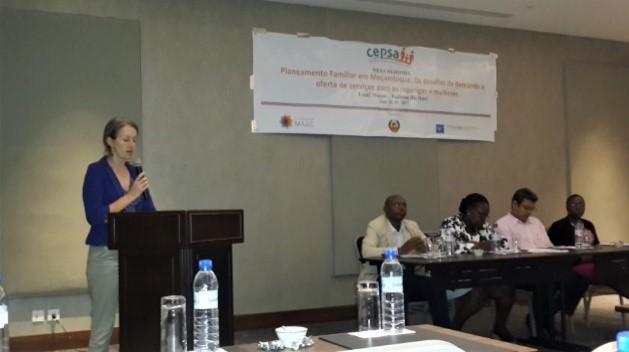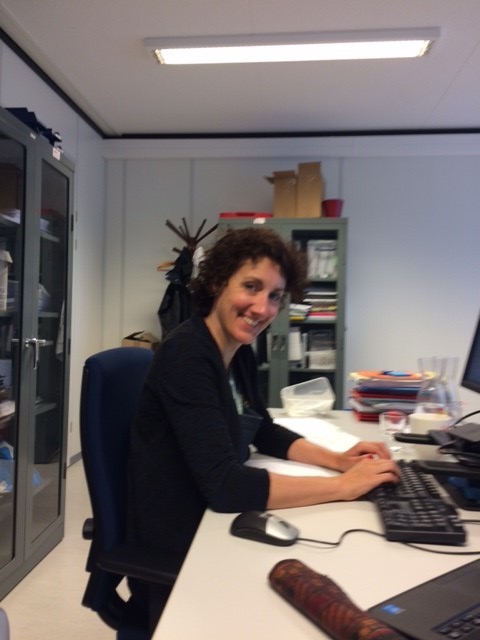Newsletter July 2017
 ICRH Global Newsletter ICRH Global Newsletter 14th of July, 2017
|
| PROJECTS |
| UN-MENAMAIS ICRH Belgium coordinates a new research project aiming at a better understanding of the mechanisms, nature, magnitude and impact of sexual violence in Belgium. Sexual violence is a major public health, judicial and societal concern in Belgium. Yet, a comparative and representative study is still lacking. UN-MENAMAIS aims to contribute to a better understanding of the mechanisms, nature, magnitude and impact of sexual violence on female, male and transgender victims, their peers, offspring, professionals and society in Belgium and to generate policy recommendations and prevention and response strategies. A consortium consisting of ICRH and IRCP at Ghent University, Université de Liège, the National Institute on Criminology, Respect Seniors and the Institute of Equality of Women and Men will realize the 5 core objectives of the project: Objective 1 Map how citizens and migrant residents in Belgium, aged 16 -100 years, with different sexual orientations, frame sexual violence. Objective 2 Explore to what extent the research population has been exposed to sexual victimisation and perpetration since childhood. Objective 3 Map indicatory pathways of how this exposure impacted the lives of victims, their family and peers and professionals they contacted for assistance. Objective 4 Evaluate the forensic sexual assault practices performed by professionals. Objective 5 Formulate recommendations for future policies and practices and provide sensitization scripts. A mixed methods methodology will be applied. Elements are a literature review, a representative survey on sexual violence victimization and perpetration, in-depth interviews with victims, a survey and focus groups with professionals, and a seminar with a Café Dialogue with professionals and victims to generate policy recommendations and sensitisation scripts. The project runs between May 2017 and April 2021,and is funded by the Belgian Research Action through Interdisciplinary Networks (BRAIN). More information: Ines Keygnaert, ines.keygnaert@ugent.be |
| Boresha The Boresha project, testing the feasibility of venue-based HIV prevention interventions targeting male and female sex workers, and their clients, in Mombasa, Kenya, entered a new phase.  Between October 2016 and June 2017, the project piloted the developed intervention in three bars. It comprised activities to promote safe sex, such as peer mobilization, skits, videos shows and condom fashion shows, as well as moonlight clinics offering sexual health counselling, HIV testing, STI care, contraception, TB screening and ART adherence counseling, and structural components, such as training of bar staff, meetings with bar managers and law enforcement sensitization. In July-August, we will evaluate the intervention through a second cross-sectional survey among 160 female sex workers, 160 male sex workers, 80 clients of female sex workers and 80 clients of male sex workers in the bars where the intervention was tested, and in three bars that served as control; and through focus group discussions with sex workers. Between October 2016 and June 2017, the project piloted the developed intervention in three bars. It comprised activities to promote safe sex, such as peer mobilization, skits, videos shows and condom fashion shows, as well as moonlight clinics offering sexual health counselling, HIV testing, STI care, contraception, TB screening and ART adherence counseling, and structural components, such as training of bar staff, meetings with bar managers and law enforcement sensitization. In July-August, we will evaluate the intervention through a second cross-sectional survey among 160 female sex workers, 160 male sex workers, 80 clients of female sex workers and 80 clients of male sex workers in the bars where the intervention was tested, and in three bars that served as control; and through focus group discussions with sex workers. |
| Family planning in Mozambique To mark World Population Day (11 July), the Center for Population and Health (CEPSA) in partnership with ICRH-M and the Government of Mozambique, organized a round table debate.  The debate focused on challenges in the demand and supply of services for girls and women. The date was celebrated this year under the theme of family planning, recognised as a fundamental instrument for the social and economic progress of societies. The event was attended by over 100 participants from government institutions, civil society organisations and academics working on health, population, education, and sexual and reproductive rights. The panelists and participants recognized the progress that has been made in family planning in the country, but also the major challenges it still faces. Mozambique still has a high unmet need for modern methods, partly due to the low coverage of health services and particularly of specific interventions for adolescents, and limitations in terms of human resources and supply chain. The importance of sustainable community and school-based interventions to create demand was highlighted, as well as the need to better address socio-cultural factors affecting demand and access to services. The debate focused on challenges in the demand and supply of services for girls and women. The date was celebrated this year under the theme of family planning, recognised as a fundamental instrument for the social and economic progress of societies. The event was attended by over 100 participants from government institutions, civil society organisations and academics working on health, population, education, and sexual and reproductive rights. The panelists and participants recognized the progress that has been made in family planning in the country, but also the major challenges it still faces. Mozambique still has a high unmet need for modern methods, partly due to the low coverage of health services and particularly of specific interventions for adolescents, and limitations in terms of human resources and supply chain. The importance of sustainable community and school-based interventions to create demand was highlighted, as well as the need to better address socio-cultural factors affecting demand and access to services.This activity is part of the recently signed memorandum of understanding between ICRH-M and CEPSA to maximize the cooperation between both intuitions in the areas of interests regarding research, academic and other relevant areas. |
| EVENTS |
| ICRH Belgium re-designated as WHO Collaborating Centre The recognition of ICRH as a WHO collaborating centre for research on sexual and reproductive health has been renewed for the next two years, until June 2019. The terms of reference are: -To conduct and coordinate epidemiological, operations and implementation research on sexual and reproductive health and rights, including family planning, maternal- child- and newborn health, STIs (including HIV), gender-based violence and harmful practices -To coordinate the development of monitoring indicators. -To provide expertise and communicate research results relevant for policy-making. |
| E-tutorial on Sexual and reproductive health & rights Body & Rights, the e-tutorial developed by Be-cause Health, the Belgian platform for international health is now also available in English.  The freely accessible e-tutorial has been developed for diplomats and development cooperation workers, bus is also useful for anyone who wants to learn about sexual and reproductive health and rights worldwide. The freely accessible e-tutorial has been developed for diplomats and development cooperation workers, bus is also useful for anyone who wants to learn about sexual and reproductive health and rights worldwide.The e-tutorial covers a wide range of topics in the field of sexual and reproductive rights and health: safe motherhood, sexual violence, child marriage, female genital mutilation, HIV, STIs, family planning and sexual rights. Through interactive video modules followed by multiple choice questions on bodyandrights.be, everyone can quickly develop their knowledge on these themes. With an English version added to the French and Dutch version, the e-tutorial can now be followed in three languages. Going through the e-turorial takes about three hours and is rewarded by a certificate. The e-tutorial is available at https://www.bodyandrights.be. |
| ICRH PEOPLE |
Jiayue Wu Jiayue Wu from Renji Hospital Affiliated to Shanghai Jiao Tong University School of Medicine in Shanghai is in Belgium for a one-year research stay. Jiayue Wu from Renji Hospital Affiliated to Shanghai Jiao Tong University School of Medicine in Shanghai is in Belgium for a one-year research stay.Jiayue is a resident doctor in the OB/GYN department of her domestic hospital. She has already got her M.D. in 2015. During her stay in Gent, from May 2017 until April 2018, she will perform activities related to the project ‘pregnancy complicated with Systemic Lupus Erythematosus (SLE)’, supervised by ICRH professor Dr. Wei-Hong Zhang. More information: Jiayue.Wu@UGent.be |
Anne Nobels Anne Nobels joined ICRH Belgium to do research on sexual violence in elderly. Anne Nobels joined ICRH Belgium to do research on sexual violence in elderly.After completing her medical studies in 2014, Anne worked for 3 years at the psychiatric ward of different Belgian hospitals. Currently Anne is a psychiatry trainee and follows a training in Relation, Family and Systemic Psychotherapy. Anne joined ICRH in June 2017 to work with dr. Ines Keygnaert and Lotte De Schrijver on the UN-MENAMAIS project, in which she will specifically focus on sexual violence in elderly. This will also be the main topic of her PhD. More information: Anne.Nobels@UGent.be |
Saar Baert |
PUBLICATIONS |
| Violence against sex workers in China A cross-sectional study on sexual and gender-based violence against Chinese adolescent women who are involved in commercial sex. Despite the vast quantity of research among Chinese female sex workers (FSWs) to address concerns regarding HIV/sexually transmitted infection (STI) risk, there is a paucity of research on issues of sexual and gender-based violence (SGBV) and the missed opportunity for sexual and reproductive health (SRH) promotion among young FSWs. Our research aimed to assess the prevalence and correlates of SGBV among Chinese adolescent FSWs, and to explore SRH service utilisation. A cross-sectional study using a one-stage cluster sampling method was employed. A semistructured questionnaire was administered by trained peer educators or health workers. Multivariable logistic regression was conducted to determine individual and structural correlates of SGBV. Between July and September 2012, 310 adolescent women aged 15-20 years, and who self-reported having received money or gifts in exchange for sex in the past 6 months were recruited and completed their interview in Kunming, Yunnan Province, China. Findings confirm the high prevalence of SGBV against adolescent FSWs in China, with 38% (118/310) of participants affected in the past year. Moreover, the study demonstrated the low uptake of public health services and high rates of prior unwanted pregnancy (52%; 61/118), abortion (53%; 63/118) and self-reported STI symptoms (84%; 99/118) in participants who were exposed to SGBV. Forced sexual debut was reported by nearly a quarter of FSWs (23%; 70/310) and was independently associated with having had a drug-using intimate partner and younger age (<17 years old) at first abortion. When controlling for potential confounders, having experienced SGBV was associated with frequent alcohol use, having self-reported symptoms of STI, having an intimate partner and having an intimate partner with illicit drug use. This study calls for effective and integrated interventions addressing adolescent FSWs' vulnerability to SGBV and broader SRH consequences. Zhang XD, Myers S, Yang HJ, Li Y, Li JH, Luo W, Luchters S. Prevalence and correlates of sexual and gender-based violence against Chinese adolescent women who are involved in commercial sex: a cross-sectional study. BMJ Open. 2016 Dec 19;6(12):e013409. doi: 10.1136/bmjopen-2016-013409. |
| Perspectives on PrEP and PEP among sex workers in Kenya In-depth interviews with 21 female and 23 male sex workers in Mombasa, Kenya Pre- and post-exposure prophylaxes (PrEP and PEP) can reduce the risk of HIV acquisition, yet often are inaccessible to and underutilized by most-vulnerable populations, including sex workers in sub-Saharan Africa. Based on in-depth interviews with 21 female and 23 male HIV-negative sex workers in Mombasa, Kenya, we found that awareness and knowledge of PrEP and PEP were low, although willingness to use both was high. Participants felt PrEP would be empowering and give added protection against infection, although some expressed concerns about side effects. Despite PEP's availability, few knew about it and even fewer had used it, but most who had would use it again. Sex workers valued confidentiality, privacy, trustworthiness, and convenient location in health services and wanted thorough HIV/STI assessments. These findings suggest the importance of situating PrEP and PEP within sex worker friendly health services and conducting outreach to promote these biomedical prevention methods for Kenyan sex workers. Restar, AJ; Tocco, JU; Mantell, JE; Lafort, Y; Gichangi, P; Masvawure, TB; Chabeda, SV ; Sandfort, TGM. Perspectives on HIV pre- and post-exposure prophylaxes (PrEP and PEP) among female and male sex workers in Mombasa, Kenya: Implications for integrating biomedical prevention into sexual health services. AIDS EDUCATION AND PREVENTION; Volume: 29; Issue: 2; Pages: 141-153. Published: APR 2017 |
| Determinants of male contraceptive use An analysis of Demographic and Health Survey data of sexually active men in Kenya. Research in Kenya has focussed on family planning from women's perspectives, with the aim of helping reduce the burden of unintended pregnancies. As such, the determinants of modern contraceptive use among sexually active women are well documented. However, the perspectives of men should be considered not only as women's partners, but also as individuals with distinct reproductive histories and desires of their own. This study seeks to understand the determinants of modern contraceptive use among sexually active men, by exploring factors that are correlated with modern contraceptive use. The data source is the nationally representative 2014 Kenya Demographic and Health Survey (DHS) of men aged 15-54 years. The analysis is restricted to 9,514 men who reported being sexually active in the past 12 months prior to the survey, as they were likely to report either doing something or not to avoid or delay pregnancy. Bivariate and multinomial logistic regression are used to assess factors that influence modern contraceptive use among sexually active men. Findings from the bivariate and multinomial logistic regression indicate that region of residence, marital status, religion, wealth, interaction with a health care provider, fertility preference, number of sexual partners and access to media were all significantly associated with modern contraceptive use among sexually active men. The authors conclude that provider-client interaction as well as dissemination of information through mass media has the potential to increase knowledge and uptake of modern contraceptives. Similar efforts targeting segments of the population where contraceptive uptake is low are recommended. Ochako R, Temmerman M, Mbondo M, Askew I. Determinants of modern contraceptive use among sexually active men in Kenya. Reprod Health. 2017 Apr 27;14(1):56. doi: 10.1186/s12978-017-0316-3. |


 Saar Baert works at ICRH Belgium on the implementation and evaluation of a pilot study on sexual assault care centres.
Saar Baert works at ICRH Belgium on the implementation and evaluation of a pilot study on sexual assault care centres.